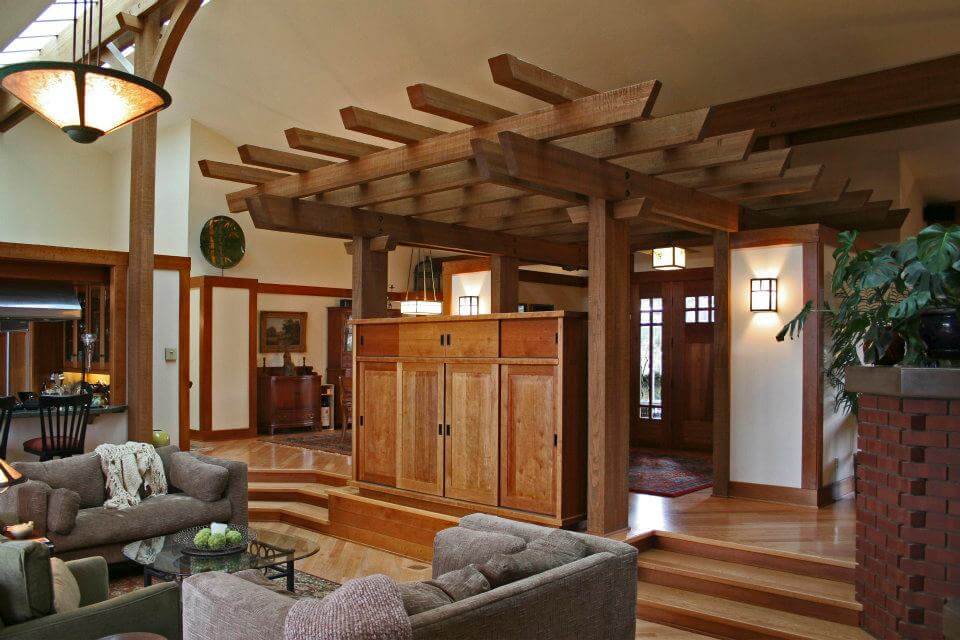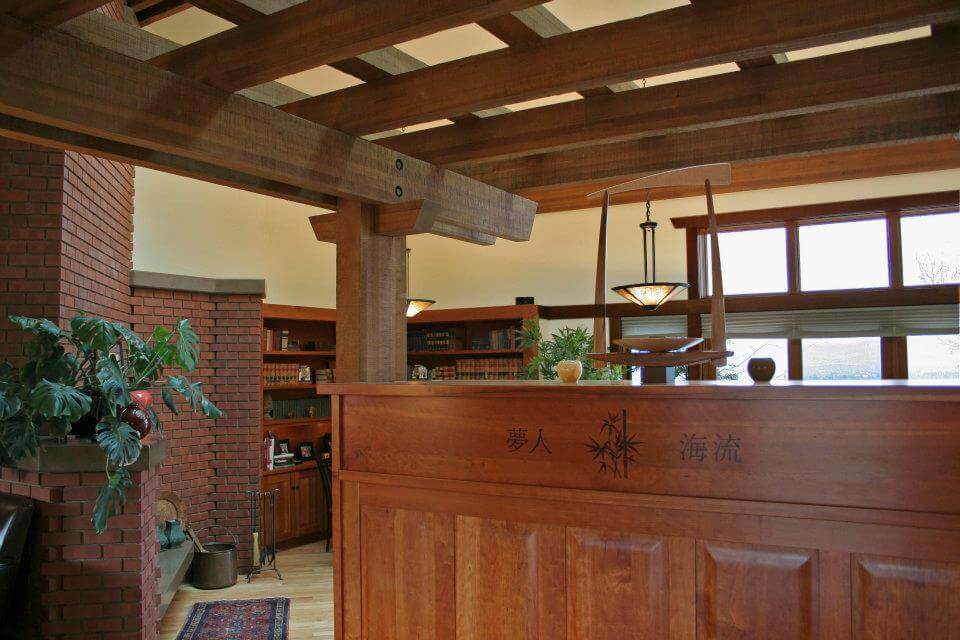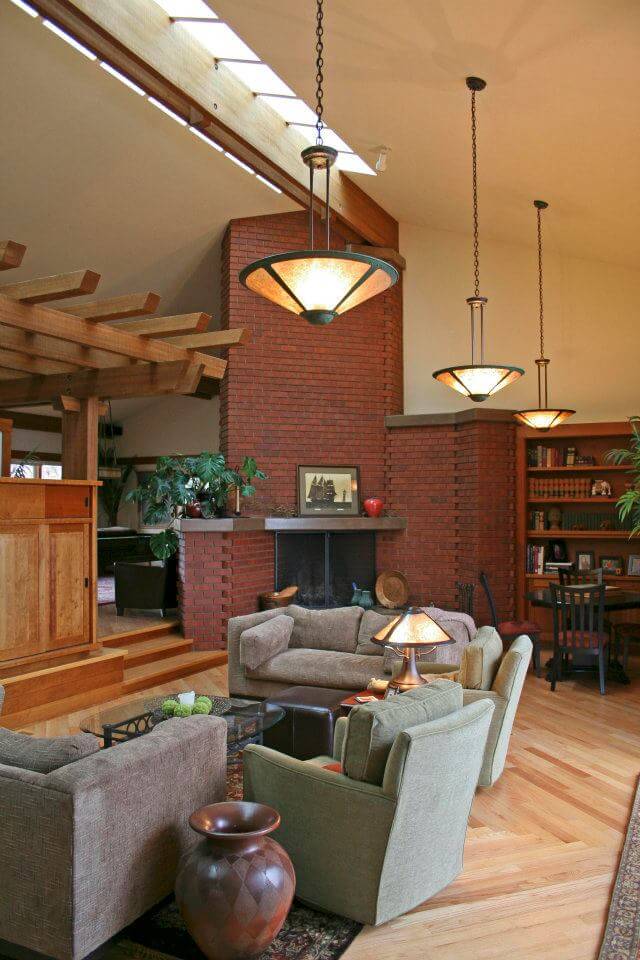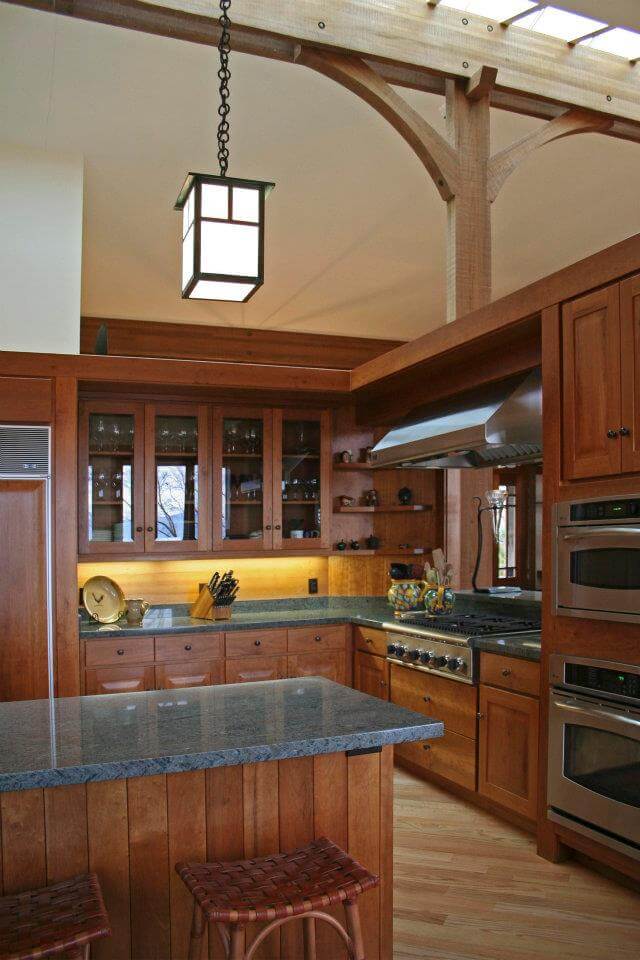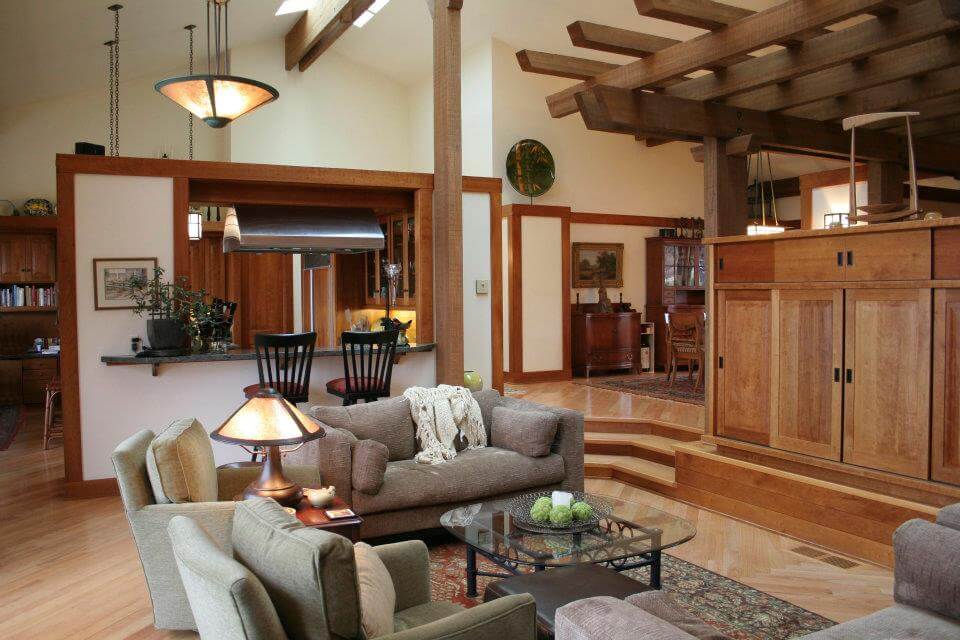With the hills outside Jacksonville, Oregon, this contemporary Craftsman-style home—inspired with elements of Japanese design—was created for John and Janet Trum as a peaceful, light-filled retreat that blends beauty, balance, and craftsmanship. The project was a rewarding collaboration with the talented designer-builder team Dale and Dean Shostrum of Shostrum Brothers, LTD, whose expertise in natural materials and fine detailing helped bring the vision to life.
The home’s design showcases an abundance of exposed timber and a dramatic ridge skylight that floods the great room with daylight, creating a warm and serene environment that changes subtly throughout the day. Every architectural element reflects both structure and artistry—a hallmark of the Craftsman tradition and its Japanese influence.
How Craftsman Architecture is Inspired by Japanese Design
The Craftsman style, which emerged in the early 20th century, drew significant inspiration from Japanese architecture and philosophy, emphasizing simplicity, craftsmanship, and a deep connection to nature.
Shared Design Principles
- Harmony with Nature: Like traditional Japanese homes, Craftsman design seeks to integrate the built environment with the surrounding landscape. Wide eaves, natural wood, and earthy tones allow the home to blend seamlessly into its setting.
- Expressed Structure: Both styles celebrate honest craftsmanship—exposed beams, joinery, and rafters are not hidden but highlighted as works of art, revealing the beauty of structure itself.
- Natural Materials: The use of timber, stone, and other organic materials creates warmth and authenticity while fostering a tactile connection to nature.
- Light and Shadow: Japanese architecture’s careful attention to natural light inspired features such as the ridge skylight, which enhances mood and highlights the home’s architectural rhythm.
- Simplicity and Function: Clean lines and purposeful spaces define both traditions, favoring proportion and flow over ornamentation.
The result is a home that feels timeless—anchored in the Craftsman tradition of American design yet elevated by the graceful restraint and natural harmony found in Craftsman architecture inspired by Japanese design. It stands as a refined example of how these cultural influences merge seamlessly to create a living space that is both soulful and enduring.

